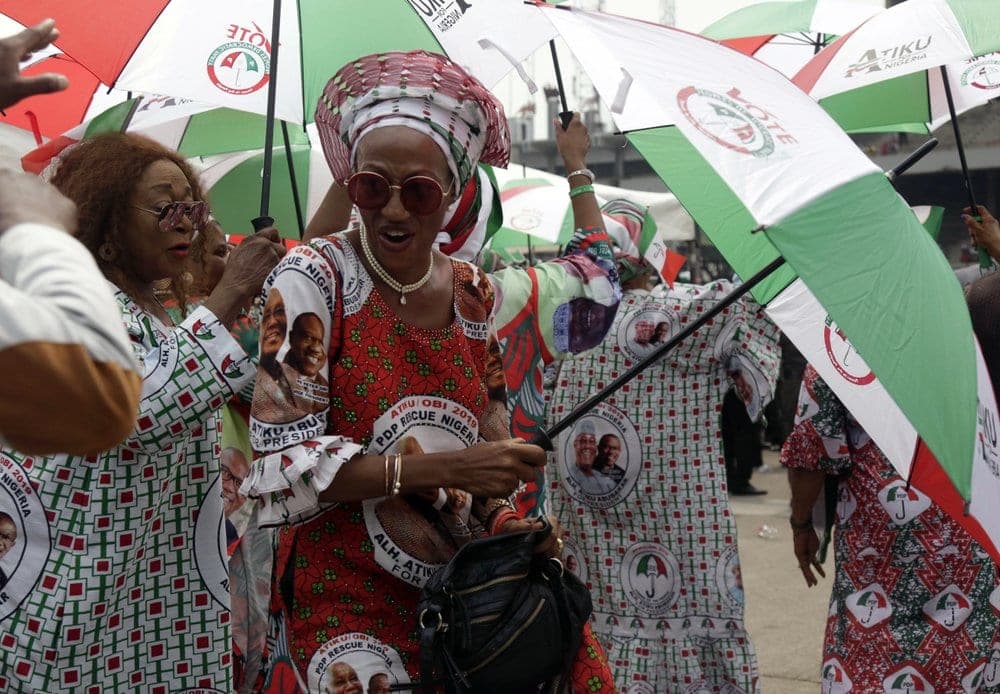As Nigeria prepares to go to the polls this weekend, the future of Christian-Muslim relations on the African continent could be in the balance.
Nigerians will vote for president and members of the National Assembly on Feb. 16, and for local governors and state legislatures on March 2.
The country’s vast population – nearly 200 million people – is divided nearly equally between the two faiths, making Nigeria both the fifth largest Christian country and fifth largest Muslim country on the planet. Muslims are dominant in the north, and Christians in the south.
For the last decade, the Islamic militant group Boko Haram has been terrorizing the northeast of the country, while in Nigeria’s “Middle Belt” – where the Muslim north meets the Christian South – Muslim Fulani herdsmen have been attacking mostly Christian farmers in attacks that often take on a religious dimension.
Christian leaders have accused President Muhammadu Buhari, a Muslim, of being soft on the Muslim perpetrators of attacks on Christians.
After one Fulani attack left over 100 people dead last year, the Catholic Bishops’ Conference of Nigeria called on Buhari to end the violence or resign. The bishops even accused him of a plan to “Islamize” the country, an accusation the president felt compelled to refute in a letter to the bishops last September.
The back-and-forth is a strong contrast to the support Buhari received when he took office in 2015, defeating incumbent Goodluck Jonathon, a Christian, after years of corruption and incompetent rule.
The austere Buhari – who had led the country as a military ruler for a short time in the 1980s – was seen even by Christians as a figure that would fight the endemic corruption and graft that has plagued the country for decades.
The former general also pledged to pacify the country’s conflict zone by replacing incompetent military commanders, especially in the northeast.
But the violence hasn’t abated, and Christians have been feeling the brunt.
Nigeria has faced its Muslim-Christian divide since before independence, when the British merged its northern and southern Nigerian colonies in 1914.
Nigeria has taken measures to keep the underlying religious tension from spilling over – its political parties are not based upon religion, and a “gentlemen’s agreement” generally sees Christians and Muslims alternate as president.
Buhari’s own vice president, Yemi Osinbajo, is a Pentecostal pastor.
That being said, it is rare for the bishops to call out a president so specifically on religious grounds, which shows how much the Christian population is suffering.
Tensions in the south – which itself is plagued by banditry and crime – have reignited an independence movement that led to a brutal civil war in the late 1960s when Nigeria crushed the self-declared Republic of Biafra in the south of the country.
One of the complaints the bishops have made to Buhari is how quickly he declared members of groups advocating independence as “terrorists” – a designation yet to be applied to the Fulani herdsmen.
The tickets of Nigeria’s two major parties both are being headed by Muslims in 2019, although challenger Atiku Abubakar is considered more liberal than Buhari.
This means whoever wins, he is going to have to make some positive signs of reconciliation and unity with Nigeria’s Christian community. The following are examples of what such success might look like.
1) Although Buhari has had successes against Boko Haram, the Fulani herdsman attacking agriculturists could be prioritized and named as terrorists. Boko Haram gets most of the press, but the Fulani are in a more dangerous position to upset Nigeria’s delicate Christian-Muslim balance.
2) Sharia law has been implemented in several northern states, and a federal sharia appeals court exists in the capital, Abuja. This is a relatively recent development, with the first state adopting sharia law only in 1999. Nigeria’s next administration could work to roll this back, especially in criminal law.
3) Corruption is the number one problem in Nigeria, and a major reason sharia law gained support in Muslim areas is because the justice system was perceived as being for sale. Taxes are siphoned off into private bank accounts, so public services aren’t provided. Poverty and inequality have been one of the main fuels for conflicts in the country. Although this is said before every election, fighting corruption ought to be the chief task of any government in Nigeria, because it is at the root of most of the country’s problems.
Why does this matter for the rest of Africa? First of all, Nigeria is the continent’s most populous country, containing over 16 percent of Africa’s population.
Its problems also spill over into other countries. Boko Haram has moved into Nigeria’s neighbors, including Chad, Niger and northern Cameroon.
It also has the continent’s largest economy, and most advanced outside of South Africa. If Christians and Muslims can’t coexist in Nigeria, it makes it harder to get along in other countries along Africa’s own “Middle Belt” which don’t have the same resources and even weaker institutions.















